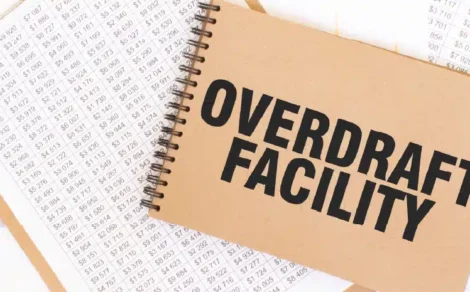When planning your investments, choosing the right product that aligns with your financial goals is key. Two of the most widely used and trusted savings instruments in India are Fixed Deposits (FDs) and Recurring Deposits (RDs). While both are offered by banks and provide a guaranteed return, they cater to different types of savers.
Whether you’re looking to invest a lump sum or prefer making regular deposits, understanding the difference between fixed deposit and recurring deposit will help you make a better choice.
This article dives into the concepts of FD vs RD, their respective benefits, and how to choose between them depending on your needs.
What is Fixed Deposit?
A Fixed Deposit (FD) is a financial instrument where you deposit a lump sum amount with a bank or financial institution for a fixed period at a predetermined fixed interest rate. The deposited money earns interest throughout the tenure, and both the deposited amount and interest are returned to you at maturity.
FDs are ideal for those who have surplus money and wish to invest it securely for a defined time period. These deposits usually offer higher returns than savings accounts and are available for tenures ranging from a few days to 10 years.
You can also choose from various FD types such as cumulative (interest paid at maturity) or non-cumulative (interest paid monthly/quarterly). Another advantage is the option to take loans or overdrafts against your FD without liquidating it.
If you’re looking to open a fixed deposit account online, Torus Digital provides an easy and paperless solution with competitive fixed deposit interest rate offerings.
What is Recurring Deposit?
A Recurring Deposit (RD) is a type of term deposit where an investor deposits a fixed amount every month for a specific tenure. Unlike FDs, where you invest a lump sum, RDs help build savings gradually through regular deposits.
The interest rate remains fixed throughout the tenure, and on maturity, the investor receives the deposit amount plus accumulated interest. This makes RDs particularly useful for salaried individuals who want to cultivate a savings habit while earning modest returns.
Investing in a recurring deposit is suitable for those who want to save systematically over time without committing a large sum upfront.
Difference Between Fixed Deposit and Recurring Deposit
The difference between fixed deposit vs recurring deposit is given below:
| Feature | Fixed Deposit (FD) | Recurring Deposit (RD) |
| Investment Type | Lump sum one-time investment | Deposit a fixed amount monthly |
| Tenure | Flexible – from days to 10 years | Usually 6 months to 10 years |
| Interest Rate | Fixed for the entire tenure, may be slightly higher than RD | Fixed for the entire tenure |
| Returns | Offer higher interest rates, especially for longer tenures | Moderate returns due to periodic contributions |
| Liquidity | Premature withdrawal allowed (penalty may apply) | Premature withdrawal typically involves penalty and loss of interest |
| Best For | Investors with lump sum savings | Individuals with regular income |
| Discipline Needed | One-time investment – no ongoing effort | Requires regular monthly contributions |
| Income Tax | Interest earned is taxable as per income tax slab | Same as FD – interest is taxable |
| Ease of Use | Simple, set-it-and-forget-it approach | Encourages saving discipline through monthly commitments |
| Loan Facility | Available against FD | May be available against RD depending on the bank’s policy |
Recurring Deposit Vs. Fixed Deposit – Which is Better?
The choice between rd vs fd depends on your cash flow, investment style, and saving capacity.
Choose Fixed Deposit if:
- You have a lump sum amount ready to invest
- You prefer one-time investing with minimal involvement
- You want relatively higher returns and capital protection
- You want to use the FD as collateral for loans or overdrafts
Choose Recurring Deposit if:
- You want to build savings through regular deposits
- You have a monthly income and want to automate savings
- You’re saving for short- to mid-term goals like vacations, gadgets, or education fees
- You wish to cultivate a savings habit while earning modest interest
If you’re an investor seeking more dynamic options in addition to traditional savings, consider opening a free demat account to explore stocks, mutual funds, and other financial instruments while continuing your FD or RD investments for capital stability.
Conclusion
Both fixed deposits and recurring deposits are effective tools for reaching your financial goals. They offer safety, predictable returns, and discipline—qualities that every investor values.
- If you prefer stability and have a fixed amount to invest upfront, go for an FD.
- If you’re building wealth gradually or are on a fixed income, an RD may suit your needs better.
Ultimately, there’s no one-size-fits-all answer. The best approach may be to combine both—use RDs to cultivate saving habits and accumulate funds, and then shift those into FDs for longer-term growth and better rates.
Platforms like Torus Digital help streamline your investment process. You can start with a savings account, open a fixed deposit, or even open trading account online to diversify into the market using a 3 in 1 account structure. This integrated solution helps you manage both secure savings and market-linked opportunities in one place.
Understanding the fixed deposit vs recurring deposit debate isn’t just about picking one over the other—it’s about knowing when and how each fits into your financial roadmap.
Related Reads
Understanding Types of Fixed Deposit
Fixed Deposits (FDs) are one of the most preferred investment options in India. Known...
By: torus
- 5 mins
- 06.Aug.2025
- 0(0)
- 0
Fixed Deposits vs Mutual Funds: A Complete Guide
When it comes to selecting investment options, two of the most popular choices among...
By: torus
- 5 mins
- 06.Aug.2025
- 0(0)
- 38
What is Overdraft Against Fixed Deposit?
When you need urgent funds but don’t want to break your fixed deposit (FD),...
By: torus
- 5 mins
- 06.Aug.2025
- 0(0)
- 52
What is a Fixed Deposit - FD Meaning, Full Form and Types
A fixed deposit (FD) is one of the most traditional and popular investment tools...
By: torus
- 7 mins
- 06.Aug.2025
- 0(0)
- 44
How to Grow Your Savings with Torus Digital Savings Account?
At a time when financial growth is key, saving smartly matters more than ever....
By: torus
- 8 mins
- 04.Aug.2025
- 0(0)
- 32
What Makes the Torus Digital Trading Account a Smart Choice?
Opening a trading account has become a crucial step for anyone looking to invest...
By: torus
- 6 mins
- 18.Jul.2025
- 0(0)
- 59
Disclaimer: The content provided in this blog is for informational purposes only and does not constitute financial advice or recommendations. The content may be subject to change and revision. Readers are encouraged to conduct their own research and consult with a qualified financial advisor before making any investment decisions. Torus Digital and its affiliates takes no guarantees whatsoever as to its completeness, correctness or accuracy since these details may be acquired from third party and we will not be responsible for any direct or indirect losses or liabilities incurred from actions taken based on the information provided herein. For more details, please visit www.torusdigital.com.
Tenneco Clean Air IPO Listing: Strong Market Debut with 27% Premium
Tenneco Clean Air India Ltd made a confident entrance into the public markets on...
By: torus
- 5 mins
- 19.Nov.2025
-
3.7(6)
-
84
Stock to Buy Today: November 19, 2025
The Indian stock market witnessed a mild decline on November 18, 2025, ending a...
By: torus
- 4 mins
- 19.Nov.2025
-
4.3(3)
-
84
Mirae Asset Infrastructure Fund NFO: A Sector-Focused Bet on India’s Growth
Mirae Asset Mutual Fund has launched a new equity scheme — Mirae Asset Infrastructure...
By: torus
- 4 mins
- 18.Nov.2025
-
4.3(6)
-
84
Emmvee Photovoltaic IPO: Shares Make Muted Market Debut, List Flat At ₹217
Emmvee Photovoltaic Power made a muted debut on 18 November 2025, listing flat at...
By: torus
- 3 mins
- 18.Nov.2025
-
3.7(6)
-
84








